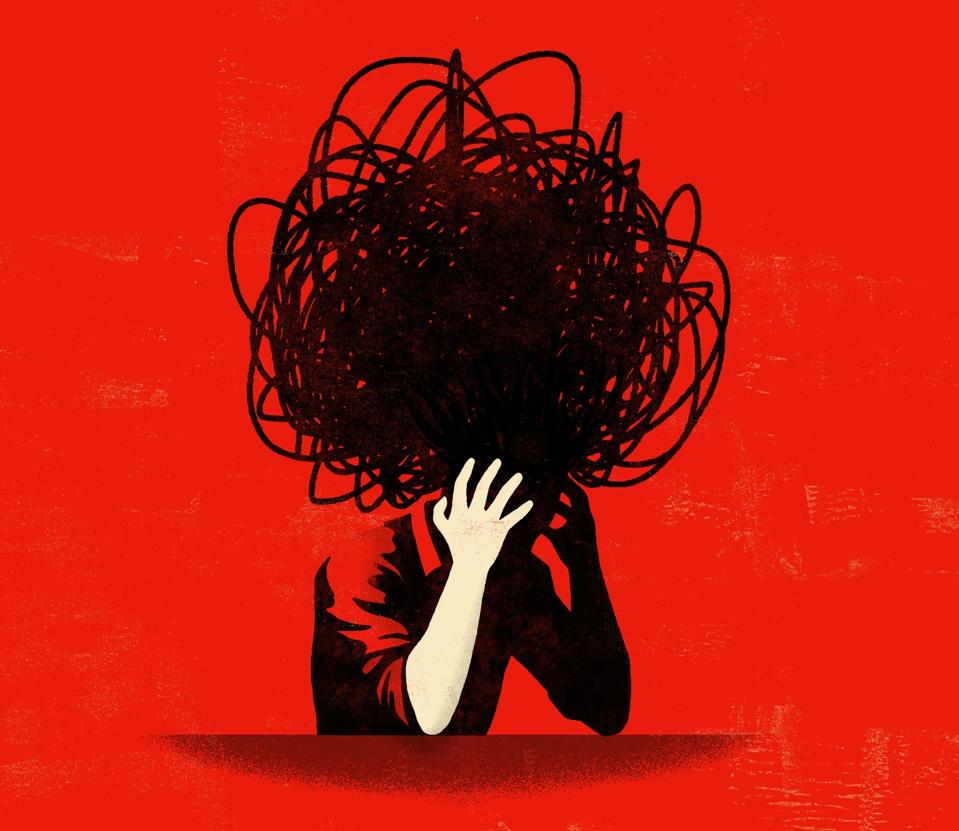American workers are worn down, stuck in a cycle of exhaustion that saps their energy and drive. Burnout is a pervasive state of physical and emotional depletion. This is brought, in part, about by long periods of constant, unabated and unrelenting stress. It makes people feel beaten up, weak, dejected, inadequate and like an absolute failure. These pent-up feelings adversely impact aspects of your life both in and outside of the workplace. It’s an all-too-common problem that many suffer from, regardless of their profession and income level.
According to a new research survey from recruiting firm Robert Half, of nearly 2,000 professionals in the U.S, 36% report feeling burned out at work and 33% say they are more burned out now than one year ago.
Burnout goes beyond the occasional tough day at work. It’s a chronic condition. The signs include relentless exhaustion, a growing sense of cynicism, and a nagging feeling that their efforts don’t matter. For many, it manifests as stress-induced ailments like headaches or emotional struggles such as anxiety tied to workplace pressures.
Fear Of Job Loss
A major source of this strain is the fear of losing your job in a tough job market. Layoffs in sectors like federal employment and industries tangled in trade disruptions have left workers uneasy. The specter of AI, automation, economic slowdowns, or sudden policy shifts pushes many to overwork in an attempt to prove their worth. The result, unfortunately, is that they find themselves more drained. This anxiety creates a vicious cycle, where the harder workers push, the closer they edge toward collapse.
About 4 in 5 workers fear losing their jobs this year, according to a survey of 1,115 employees in the U.S. by MyPerfectResume. The survey revealed that 76% anticipate more layoffs this year, while 63% expect more business closures vs. 2024 and 90% fear a recession could be on the way.
What Leads To Burnout
Economic turbulence, particularly from recent tariffs, adds another layer of stress. New levies on imports from countries like Canada, Mexico, and China have sent ripples through industries reliant on global supply chains. Manufacturing and retail workers, in particular, face unpredictable demands as businesses grapple with rising costs. For workers, this translates to a precarious environment where job security feels like a moving target.
Inflation, too, is squeezing workers from all sides. The rising cost of essentials such as housing, groceries, healthcare, has outpaced wage growth for many, eroding purchasing power and stretching family budgets to the breaking point. Families are left worrying about how to keep up, a constant financial strain that follows them into the workplace. While corporate profits have soared, workers see little relief, fostering a sense of unfairness that deepens their frustration.
Beyond these economic pressures, workplace dynamics are also to blame. The shift to hybrid or remote work, while offering flexibility, has blurred the lines between professional and personal life. Many workers feel tethered to their jobs, expected to be perpetually available.
A Gallup poll finds that full-time employees in the U.S. have been working fewer hours per week for the past five years. Average hours worked dropped since 2019 when U.S. employees reported working an average of 44.1 hours. In 2024, they work about 42.9 hours per week. On the other side of the coin, understaffing is an issue as companies cut costs or struggle to hire, and dump workloads and extra responsibilities onto already stretched employees.
The toxic broader socio-political climate doesn’t help. A polarized society, coupled with global uncertainties, adds a layer of existential unease that seeps into daily life. Workers are navigating not just their jobs but a world that feels spinning out of control. For those in low-wage or less secure roles, these pressures are even more acute.
What You Can Control
American workers are resilient, but they’re running on fumes. You need to take charge. Seek out a mental health professional. Find someone to talk with and share your feelings. Be kind to yourself, limit stress and try to relax. Experiment with what works best to destress.
Focus on things that are within your control. Make sure that you eat healthily, get enough sleep and engage in physical activities. Go for a walk, ride a bike, do Yoga, hit the gym, contact friends and family. Keep in mind that it’s not just you. If it makes you feel a little better, many people around the world are experiencing similar feelings.
Focus on hunting for a new job that offers a better, less stressful situation. Start sticking up for yourself. Place boundaries, prioritize rest, or seek mental health support.

